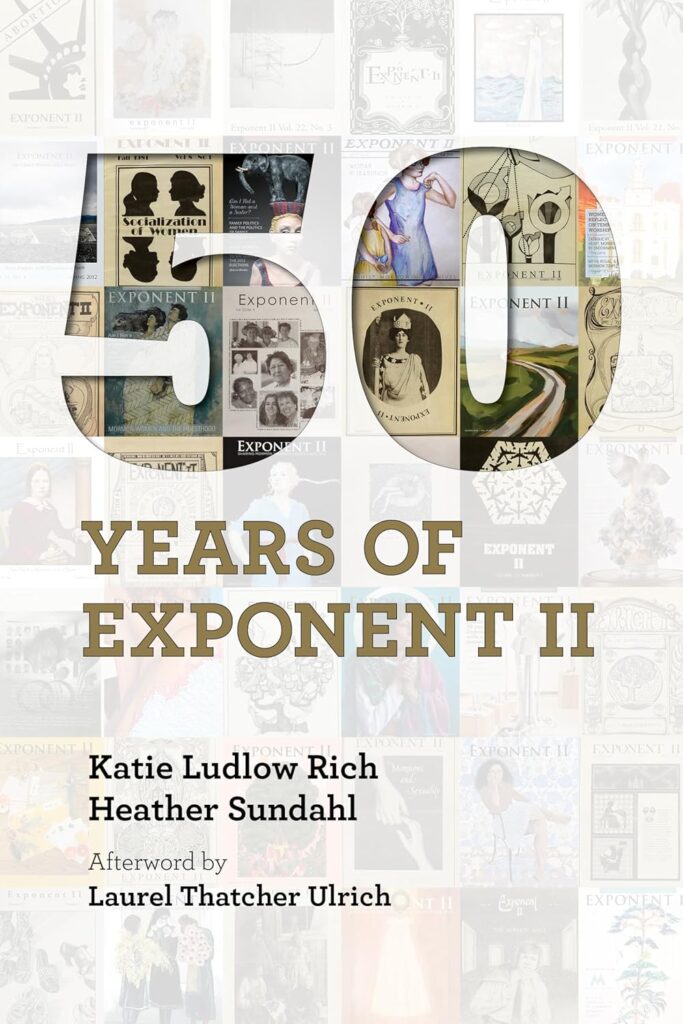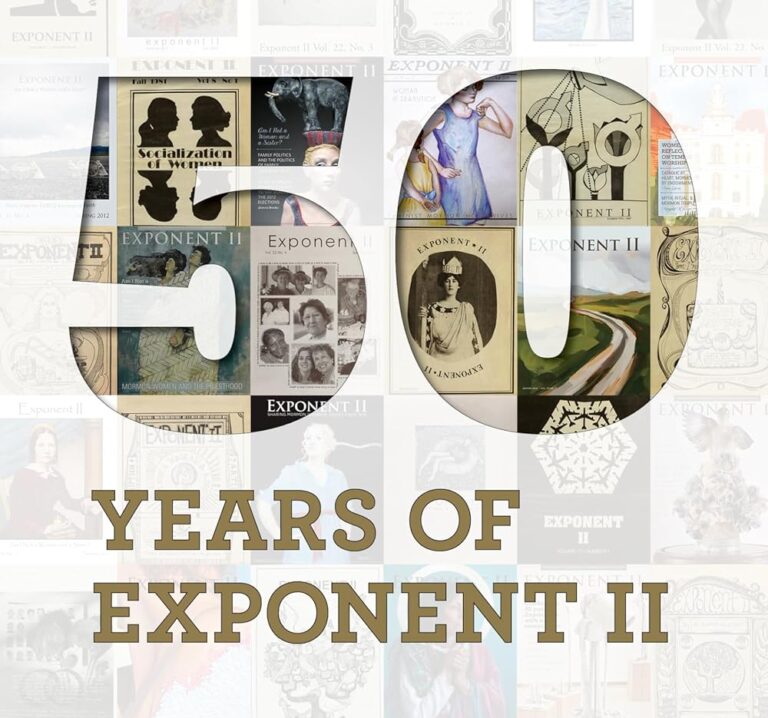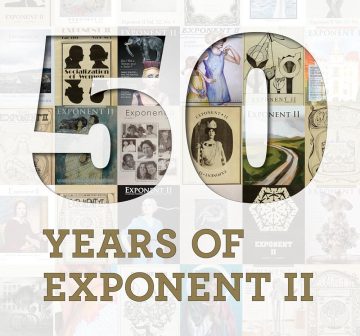I deeply appreciate my luck witnessing the work, heart, and sacrifices given in creating the book 50 Years of Exponent II by Katie Rich and Heather Sundahl from the periphery as a friend and Exponent II blogger. The authors’ work often reminded me of the women they were writing about who juggled children, husbands, editing, writing, and a million other responsibilities as they collected the words of women. This historical book is beautifully written about a topic I love and women I know. It was a joy to read, and the words of Mormon women linger still, changing me with their stories.
As a Mormon Feminist, healed and held by the words published in the Exponent II magazine and blog, I feel the soul of Exponent through the words of its history as I read them in Rich’s and Sundahls’ book 50 Years of Exponent II. From the introduction to the narrative history to the photos and art to the essay and poetry selections to the #hearLDSwomen selections and the Afterward by Laurel Thatcher Ulrich, the pages of 50 Years of Exponent II add “to the body of evidence of what it is like to be a Mormon woman” (xviii).
This book celebrates feminine joy, friendship, perseverance, and tension as it examines the Mormon Feminists behind the creation, publication, and transformation of all facets of Exponent II. In a religious tradition that consistently neglects to preserve Mormon women’s words, the words and pages and history in this book feel sacred to me.
50 Years of Exponent II explores and highlights the “dual platforms of Mormonism and feminism” (62) and Exponent II’s role in this intersection of identities. While this book recognizes the beauty and passion in its duality, it also highlights the painful reality in LDS culture that feminism and Mormonism are dueling identities as well. Consequently, Exponent II was created and is maintained by Mormon Feminists who live with this internal dueling. The book demonstrates again and again that Exponent staff and writers “confront unsettling intersections of their dueling identities as feminists and Mormons” (26). This aspect of the book is relatable and inspiring as it uncovers stories left out of our incomplete Mormon history and brings clarity and meaning to my LDS journey.
There is an extensive list of Mormon Feminists from the past fifty years who have found their way to Exponent II, and they are written into 50 Years of Exponent II with tender consideration. Whether by name or spirit, this book humanizes Mormon Feminists and brings their hearts, friendships, and griefs to the archives of history. It highlights educated and ambitious women whose intellectual and philosophical stamina did not get in the way of Exponent II’s goal: to share women’s voices.
Mormon women are not a monolith and this book magnifies that truth. One of my favorite parts of 50 Years of Exponent II is the archive section where essays, poems, and blog post selections are included. The older pieces, published in the ’70s and ’80s, before I was born, are haunting to read as I recognize many of the same themes, anguish, and issues Mormon Feminists write on the blog today. And while there are similarities throughout the years, the array of diverse experiences of Mormon Feminists is incredible.
The pieces selected for the book were carefully curated, and I enjoyed reading and rereading each one. The essay “Shadow of His Wings” by Deborah from 2009 made me cry, “Minus Motherhood,” an essay by Karen Rosenbaum from 1999, made me smile, and “Love Making,” a poem by Ann Gardner Stone from 2000, made me reach for my partner. That these words, written by Mormon women, can speak to my heart from the past is a sacred tribute to this book and the legacy of Exponent II. Rich and Sundahl’s book is a gift, pulling the past into the present and allowing us to learn from our foremothers and build on their words and ideas.
Recently, Melissa Inouye, a few days before her death, declared that the LDS church needs to work harder to “preserve the words of dead Mormon women.” Exponent II has done and continues to do this, and not just for dead women but for living women as well – most of the women mentioned in 50 Years of Exponent II are still alive! I hope everyone on the wide range of Mormonism, and those interested in Mormon history, reads this book that preserves the words of Mormon women and brings to life the past 50 years of Exponent II.
*Preorder 50 Years of Exponent II by Katie Rich and Heather Sundahl on Amazon or Barnes and Noble. This book will be released on August 26, 2024.








2 Responses
Thank you!!! This book is a labor of love.
Thank you, friend! This is so kind.